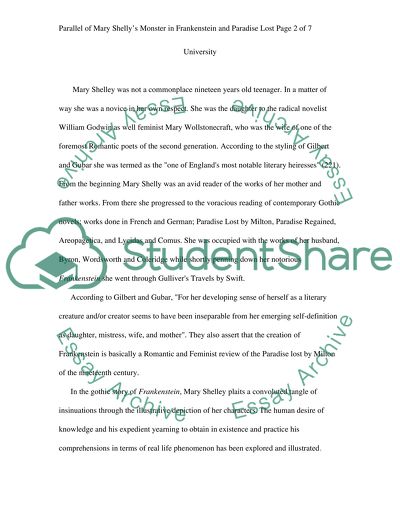Cite this document
(“Mary Shellys Monster in Frankenstein and Paradise Lost Book Report/Review”, n.d.)
Retrieved from https://studentshare.org/literature/1534624-mary-shellys-monster-in-frankenstein-and-paradise-lost
Retrieved from https://studentshare.org/literature/1534624-mary-shellys-monster-in-frankenstein-and-paradise-lost
(Mary Shellys Monster in Frankenstein and Paradise Lost Book Report/Review)
https://studentshare.org/literature/1534624-mary-shellys-monster-in-frankenstein-and-paradise-lost.
https://studentshare.org/literature/1534624-mary-shellys-monster-in-frankenstein-and-paradise-lost.
“Mary Shellys Monster in Frankenstein and Paradise Lost Book Report/Review”, n.d. https://studentshare.org/literature/1534624-mary-shellys-monster-in-frankenstein-and-paradise-lost.


